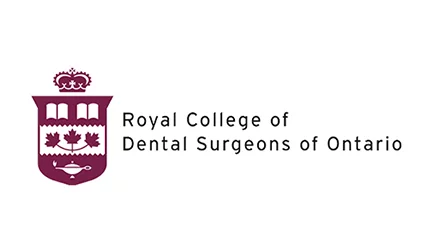OCCLUSAL SPLINT
PREVENT TEETH BRUXISM BY WEARING AN OCCLUSAL SPLINT
An occlusal splint or night guard treats bruxism (teeth grinding), teeth clenching, and symptoms of TMD (temporomandibular joint disorders). An occlusal splint is an acrylic oral appliance that is custom-made to fit over the top or bottom teeth and is usually worn while sleeping. It may also be worn during the day in severe cases.
Book Your appoinment! Call (416) 691- 8555 or Click here
USE OF AN OCCLUSAL NIGHT GUARD?
It is used to reduce grinding and clenching behaviours, prevent damage to the teeth, and reduce muscle and joint pain. An occlusal splint takes the brunt of the pressure that would otherwise be directed at your teeth—the splint is worn down while your teeth remain protected. An occlusal splint is designed to keep your jaw in a more relaxed position while you sleep.
WHY IS AN OCCLUSAL SPLINT/NIGHT GUARD REQUIRED?
Bruxism (grinding) is when you slide your teeth back and forth over each other, eventually wearing down your teeth. Grinding or clenching can also be noisy at night to bother sleeping partners.
Grinding puts pressure on your jaw’s muscles, tissues, and other structures. This can lead to jaw pain, soreness, headaches, earaches, and damaged teeth. Teeth may become shortened due to extensive grinding; tooth enamel can wear away, causing teeth to become more sensitive to temperature extremes.
The pressure from grinding can fracture teeth and crack fillings. Grinding also exacerbates any periodontal issues. Clenching means you tightly hold your top and bottom teeth together, especially the back teeth. Constant grinding and clenching can lead to jaw pain and other tooth-related problems.
HOW TO USE AN OCCLUSAL NIGHT GUARD?
People can grind and clench subconsciously during the day and night, although sleep-related bruxism is often a bigger problem because it is harder to control. The cause of bruxism is not completely agreed upon, but daily stress may be a trigger in many people.
Clenching and grinding can worsen existing dental or TMJ (temporomandibular joint) problems. The TMJ is the small hinge-like joint that connects the lower jaw to the upper jaw allowing you to chew and talk.
There are a variety of approaches for treating TMD. One of the first treatments recommended is the use of an occlusal splint because it is a non-invasive, reversible treatment. It often resolves the TMD without the need for surgery (which is the last resort).
MATERIAL OF OCCLUSAL SPLINT GUARDS
The common material from which occlusal splints are fabricated is either acrylic resin or softer thermoplastic rubber. The occlusal splints are removable appliances that can be easily removed when required. Nightguards or occlusal splints are specially designed to stabilise and support muscles to prevent malocclusions and correct the positioning of teeth.
BENEFITS OF WEARING OCCLUSAL NIGHT GUARDS
Wearing occlusal splints at night can effectively protect your teeth from any damage due to teeth grinding or clenching habits. Moreover, they are lightweight, non-invasive and comfortable to wear.
Occlusal splints have multiple benefits, including:
1. IMPROVES SLEEP AT NIGHT
A well-fitted occlusal splint will allow your muscles to relax by aligning the jawbone. Wearing night guards or occlusal splints at night fosters healthier and restful sleeping patterns by reducing the tension or stress on teeth. Usually, when people wear occlusal splints initially, they find it slightly uncomfortable, but after some period, they get used to them.
2. PREVENTS TOOTH DAMAGE
The occlusal splints effectively limit the movements of the jaw muscles at night and provide protection against bruxism and teeth clenching, saving the orofacial structures from damage. That’s why they are also called nightguards, and they also absorb a large part of the pressure or strain produced by the jaw, which results in wearing down the structure of occlusal splints rather than tooth enamel.
3. FEWER HEADACHES
Headaches and bruxism have a close relationship. A study has shown that extreme emotional disturbances like anxiety, anger, or stress lead to constant teeth-grinding habits, which result in extreme headaches and migraines.
The night guards or occlusal splints form a barrier between teeth and minimise their direct contact, distributing the pressure of grinding or clenching equally to the entire jaw, effectively reducing headaches.
4. DECREASES JAW PAIN
The night guards allow the jaw muscles and ligaments to relax and prevent clenching or grinding of teeth by minimising their direct contact. The occlusal splints also prevent incorrect positioning of teeth and provide vertical support to the jaw by stabilising it. In this way, the occlusal splints or night guards effectively reduce jaw pain at night and increase sleep quality.
5. PREVENTS SNORING
Due to clenching and teeth-grinding habits, you can’t breathe properly because it narrows down the airways and results in snoring. Night guards can effectively prevent snoring by separating the upper and lower jaw, which keeps the airways open so that enough air can pass through. This way, you can get better and improved sleep without snoring.











